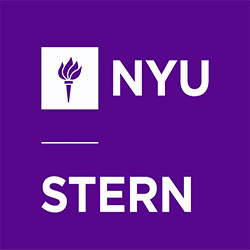I always hoped I might go to business school, but five years into working, that goal felt more and more overwhelming. I didn’t see a world in which I would be willing to take two years away from my career trajectory and feel like the ends justifies the means. Working in the tech industry where new programs, technologies, and companies are launched daily, taking two years away from the hustle felt impossible.
Once I started to look into different programs, knowing I wanted to stay in New York City, I was pleasantly surprised to discover the Tech MBA program at Stern. At first I thought this must be too good to be true – how could one complete a full MBA program in just one year? Upon speaking to current students in the program, I grew more and more excited about the opportunity to complete an MBA in a year, within my specialized industry, and to join a cohort of students who share the same passion and commitment to the tech industry.
I’d like to tell you about a few components of the program that make it special, and that have benefited me throughout the experience. First, spending one consolidated year in school felt like the right choice, because I would need to be very intentional about the classes I took and how I spent my time with clubs and social activities. I have really learned in to the experience – it flies by so quickly!
Next, I wanted the option to take very technical courses and strengthen my product management acumen. I had always told myself I would learn how to code in my free time, but having the access to a blended business and technology core has helped me realize this goal. Taking classes like Dealing with Data, Data Science for Business, and Foundations of Mobile Networks have allowed me to learn how to code in Python, run data models in Weka, and understand the basics of network connectivity. We even had a session about UX design and a workshop on Figma, which I had always been too intimidated to learn in the past!
Finally, I was also attracted to the small class size of the cohort for the Tech MBA. While a typical MBA class might have up to one thousand students, I am really pleased that my Tech MBA cohort has fifty diverse, smart, and emotionally intelligent students. Over the summer, we were one of the only student groups on campus, and took all of our core classes together. This helped foster an amazing bond between the small cohort, and created strong, genuine friendships. We have taken East River boat cruises, planned Friendsgiving dinners, attended concerts, and hosted holiday dinner parties. I felt like I already had a community after living in New York for many years, but can say definitively that the cohort students from across the country and the world have become lifelong friends and future business partners.
I can’t recommend the Tech MBA program enough – please get in touch if you’d like to hear about my experience further!

